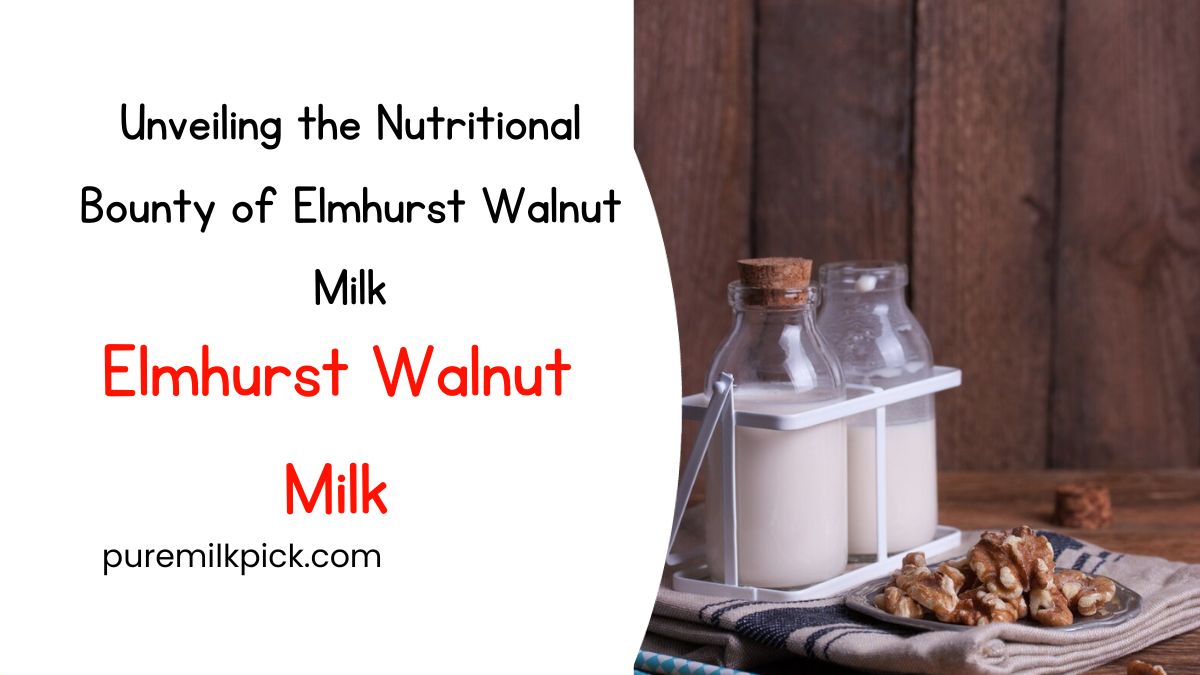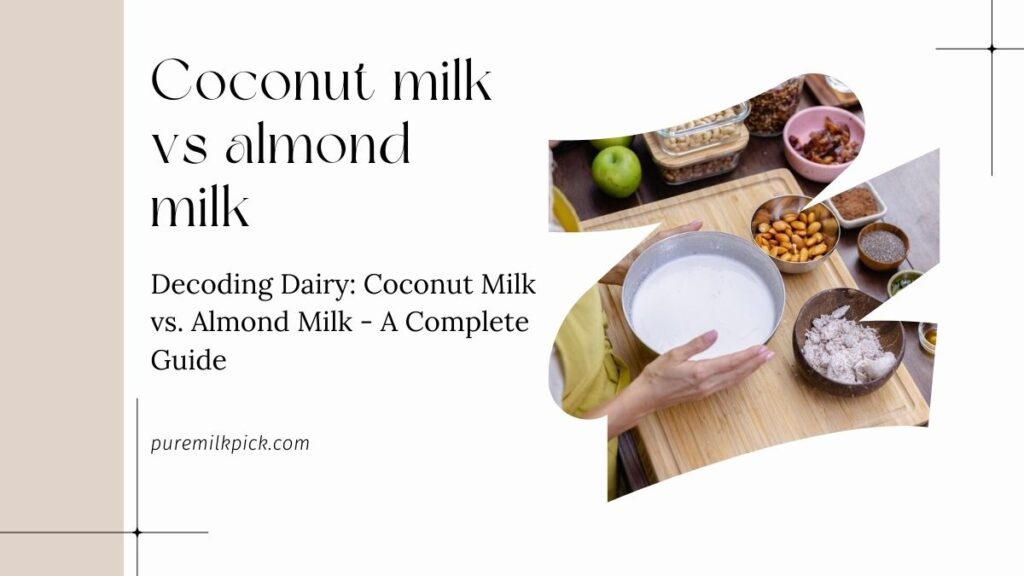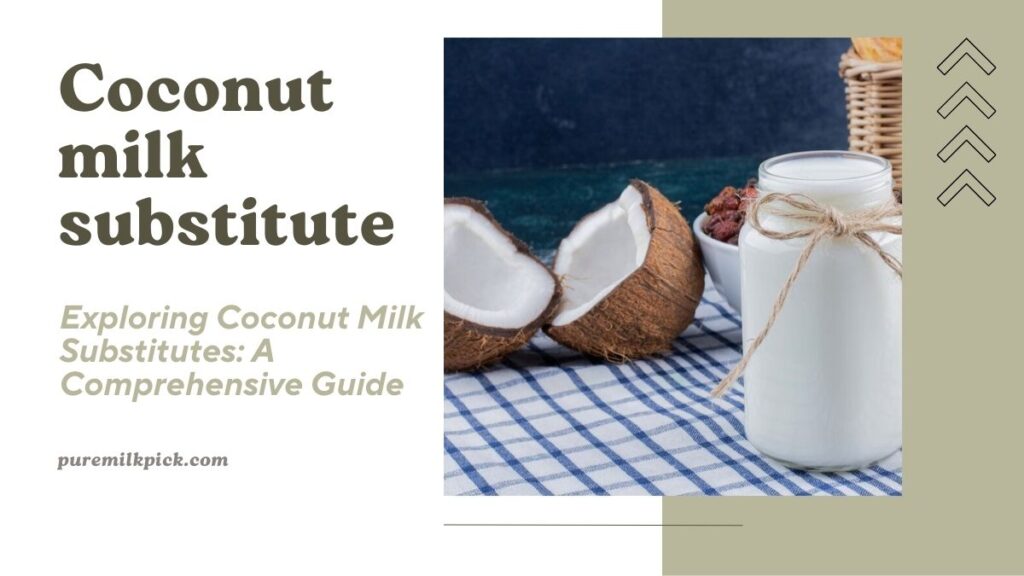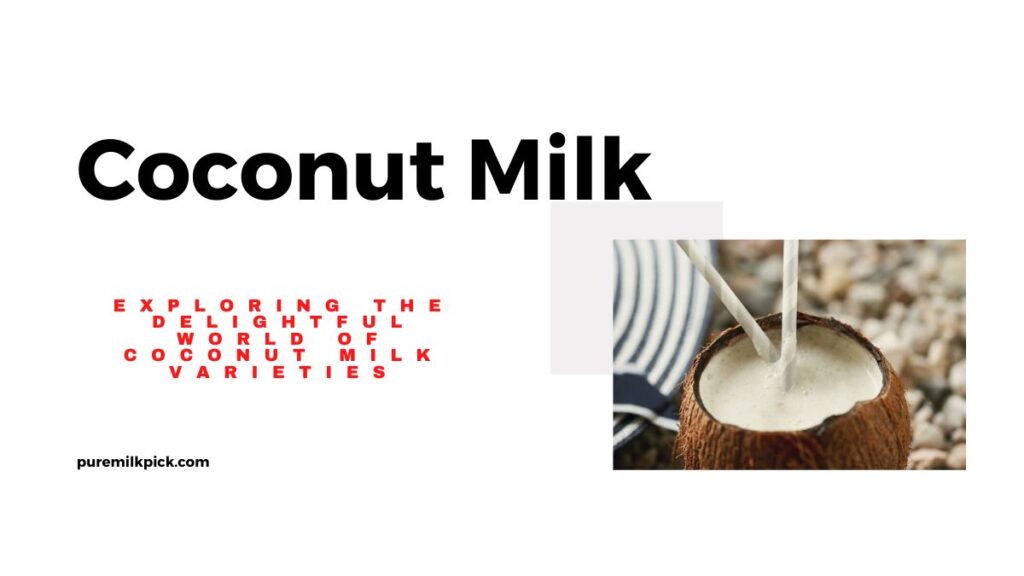Welcome to the flavorful world of Elmhurst Walnut Milk a delightful dairy-free alternative that’s transforming the way we think about plant-based beverages. In this comprehensive guide, we’ll delve into the rich tapestry of Elmhurst’s walnut milk, exploring its nutritional prowess, versatile applications, sustainability efforts, and more. As the dairy aisle expands with innovative options, Elmhurst stands out with its commitment to quality, taste, and health benefits.
Understanding Elmhurst Walnut Milk
History and Background
Elmhurst has been a pioneering force in the realm of plant-based beverages, known for its dedication to crafting dairy alternatives that prioritize taste and nutrition. The inception of their walnut milk variant represents a commitment to expanding choices for health-conscious consumers seeking diverse plant-based options. With roots grounded in sustainability and innovation, Elmhurst has established itself as a leader in the alternative milk market.
Nutritional Value and Benefits
Elmhurst Walnut Milk boasts an impressive nutritional profile, offering a healthy blend of essential nutrients. Walnut milk stands out for its unique composition compared to its counterparts like almond, soy, or oat milk. Packed with omega-3 fatty acids, antioxidants, and essential vitamins and minerals, this beverage promotes heart health, aids in cognitive function, and supports overall well-being. Additionally, its natural richness adds a creamy texture to recipes without compromising on nutritional value.
Read More: Exploring Califia Farms‘ Coconut Milk
The Nutritional Profile of Walnut Milk
Comparison with Other Plant-Based Alternatives
Walnut milk sets itself apart when compared to popular plant-based alternatives like almond, soy, and oat milk. While each variant offers its unique benefits, walnut milk stands out due to its distinctive nutritional composition. Unlike almond milk, which tends to be lower in calories and protein, walnut milk contains a slightly higher calorie count owing to its healthy fat content, mainly omega-3 fatty acids. Moreover, soy milk, known for its protein content, lacks the omega-3 fatty acids found abundantly in walnut milk. Oat milk, on the other hand, might excel in fiber content but may fall short in healthy fats and certain essential nutrients present in walnut milk.
Key Nutrients Found in Walnut Milk
The nutritional bounty of walnut milk makes it a standout choice among plant-based alternatives. Rich in omega-3 fatty acids—specifically alpha-linolenic acid (ALA)—walnut milk contributes significantly to heart health and cognitive function. Additionally, its generous supply of antioxidants, such as vitamin E and polyphenols, offers a shield against oxidative stress, promoting overall well-being. The presence of B vitamins like folate and riboflavin further enhances its nutritional profile, supporting energy metabolism and cellular health.
Addressing Allergens and Sensitivities
Walnut milk’s unique composition might raise concerns for individuals with nut allergies or sensitivities. Given that walnuts are tree nuts, individuals prone to nut allergies should exercise caution or avoid consuming walnut milk altogether. While rare, allergic reactions to walnut milk may include itching, swelling, or digestive issues. For those without allergies, walnut milk presents a safe and nutritious dairy alternative, catering to diverse dietary preferences. Always consult allergists or healthcare providers for guidance, especially when navigating allergies or sensitivities.

Taste and Versatility
Sensory Experience
The distinctive taste of Elmhurst Walnut Milk elevates the drinking experience. Its subtle nuttiness, coupled with a creamy texture, provides a delightful alternative to dairy milk. This characteristic flavor enhances the savoriness of dishes and complements sweet treats, making it a versatile addition to any culinary repertoire.
Applications in Cooking and Beverages
From enriching morning coffee to being a key ingredient in baking, Elmhurst Walnut Milk proves its versatility in various recipes. Its ability to blend seamlessly in savory dishes, smoothies, desserts, and even sauces makes it a go-to choice for amateur and seasoned chefs. Whether used as a standalone beverage or a cooking ingredient, its adaptability shines through in every dish.
Sustainability and Ethical Practices
Commitment to Sustainability
Elmhurst’s ethos extends beyond just the product—it’s about sustainable practices. The sourcing of walnuts follows eco-friendly methods, ensuring minimal environmental impact. With a dedication to reducing carbon footprints and supporting local communities, Elmhurst emphasizes sustainability at every stage of production.
Ethical Approach
Transparency and ethical responsibility define Elmhurst’s practices. Through fair trade partnerships and responsible sourcing, the company supports ethical farming practices, contributing to a more ethical and sustainable food industry.
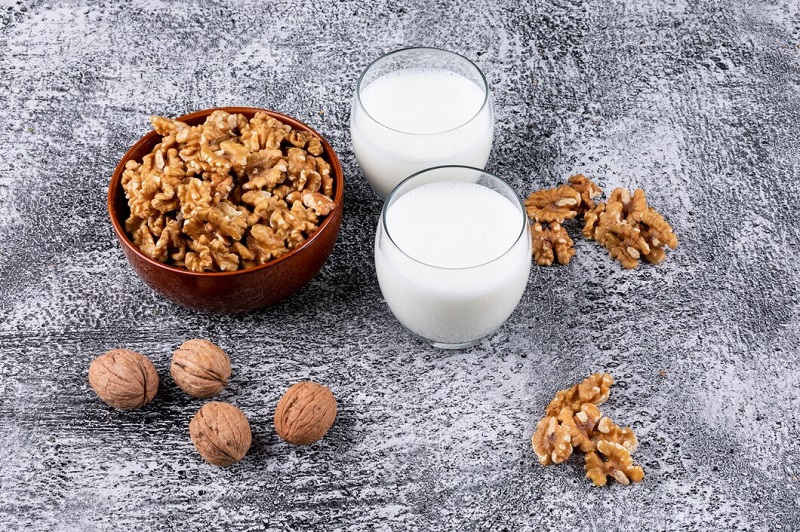
How to Incorporate Elmhurst Walnut Milk into Your Diet
Recipe Ideas and Culinary Tips
Discover the endless possibilities of incorporating Elmhurst Walnut Milk into your daily diet. From creamy porridges to velvety soups and decadent desserts, this versatile beverage serves as a nutritious foundation for countless recipes. Experimenting with its use in cooking and baking will unveil its culinary magic.
Transitioning to Plant-Based Alternatives
For those transitioning from traditional dairy to plant-based alternatives, Elmhurst Walnut Milk offers a seamless shift. Its familiar taste and nutritional benefits ease the transition, providing a satisfying dairy-free experience without compromising on flavor or texture.
Conclusion
In conclusion, Elmhurst Walnut Milk emerges as a flavorful and nutrient-packed dairy alternative, redefining the plant-based beverage landscape. Its nutritional richness, versatile applications, commitment to sustainability, and ethical practices position it as a standout choice in the ever-expanding world of non-dairy milk. Embrace the goodness of Elmhurst Walnut Milk and elevate your culinary endeavors while nurturing your health.
FAQs about Elmhurst Walnut Milk
Unfortunately, walnut milk is not recommended for individuals with nut allergies due to its primary ingredient being walnuts, a tree nut. Those allergic to nuts should avoid walnut milk to prevent allergic reactions.
Yes, walnut milk can serve as a substitute for dairy milk in various recipes, including beverages, baking, and cooking. Its creamy texture and slightly nutty flavor make it a versatile ingredient. However, keep in mind that its distinct taste might not suit every recipe, so experimentation may be needed to find the perfect balance in different dishes.
Walnut milk has a distinct, mildly nutty flavor that sets it apart from other plant-based alternatives. Compared to almond or soy milk, walnut milk offers a richer, creamier taste with a subtle nuttiness, making it a unique choice for those seeking variety in non-dairy options.
